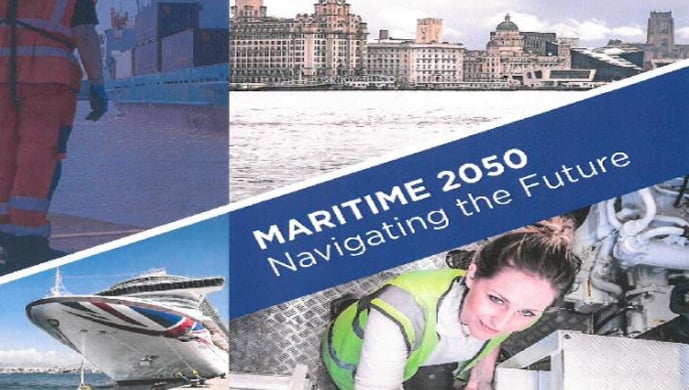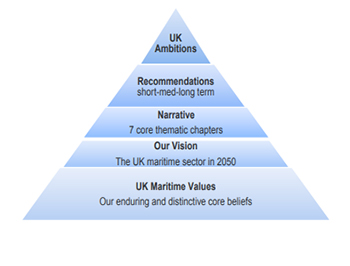Government unveils policy plans to keep UK as 'a leading maritime nation'
24 January 2019

Nautilus International has welcomed the UK government's launch of a wide-ranging strategy which sets policy objectives for the long-term future of the UK's maritime services.
The Maritime 2050 document sets out a series of initiatives which aim to ensure that the UK 'will continue to be a leading maritime nation for the next 30 years and beyond'.
It includes a recommendation to establish a Maritime Skills Commission, bringing experts together to report on the existing and future skills needs of the industry on a five-yearly cycle.
It promises that future reviews of the UK tonnage tax regime will examine the training element within the scheme, and also pledges action to improve the diversity of the maritime workforce.
The policy paper has a strong emphasis on technology and says that the UK 'will develop cutting-edge seafarer training maximising the use of future technologies such as virtual reality and augmented reality.'
The document also proposes to establish an 'innovation hub' at a UK port by 2030, action to reduce harmful emissions from shipping, along with legislation to introduce a domestic framework for autonomous vessels to enhance testing in UK waters.

Transport secretary Chris Grayling said: 'Maritime is a vital UK industry, bringing in £14 billion to our economy as well as providing thousands of new and exciting careers for people across the country. This strategy is a clear message to the world – we will continue to be a leading maritime nation for the next 30 years and beyond.'
Nautilus has joined a broad spectrum of shipping industry groups in welcoming the package.
'The maritime sector is of fundamental importance to the UK and needs to be treated as such,' said general secretary Mark Dickinson. 'We have been calling upon successive governments to plan for the long term, to think ahead and ensure there are the policies and the strategy to ensure the UK has sufficient maritime skills to guarantee the nation's maritime resilience.
'This initiative makes a welcome commitment to the future and there are many welcome aspects within the Maritime 2050 document, of which the call for a commission to oversee our skills needs is of particular importance,' he added.
'Securing the necessary investment in our maritime educational and training capacity and the commitment to ensure that all ships and all seafarers, regardless of nationality, are eligible for the national minimum wage when working in UK waters are among the other highlights for me.'
Follow this story
-
Government
Government unveils policy plans to keep UK as 'a leading maritime nation'
- News
- 24 January 2019
-
Environment
IMO greenhouse gas agreement is the 'absolute bare minimum'
- News
- 13 April 2018
-
Federation
UK government announces long-term policy plan
- News
- 27 March 2018
Tags
